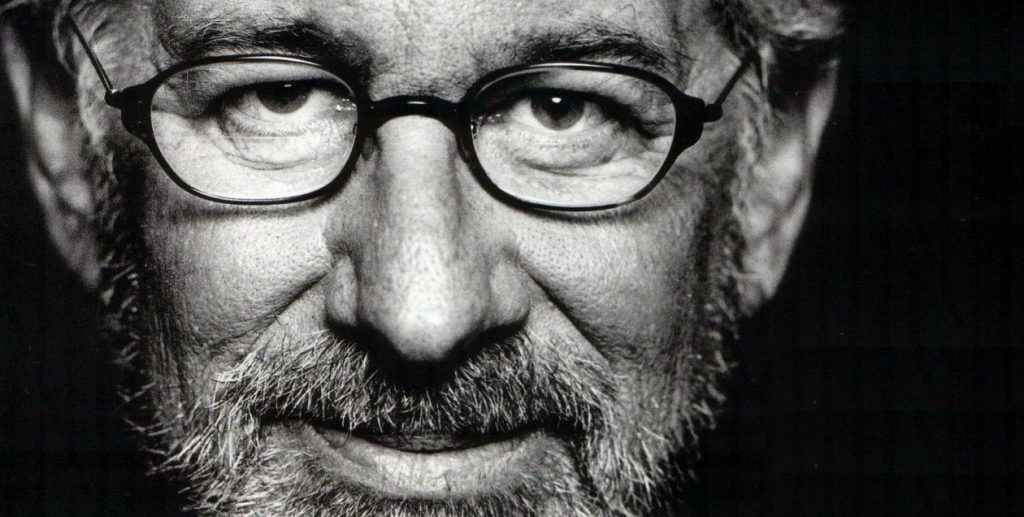Movies can be a lot of different things. They can be a bombastic form of commercial entertainment, a statement on current societal conditions, an exploitation of a hot topic in culture or a shameless advertisement for something marketable. However the films that stay with people are the ones that are an expression of passion and love of the craft. People remember great movies because they can feel the effort and imagination put into them.
Someone who knows that all too well and has been proving it for over 40 years is director Steven Spielberg. The ambitious dreamer has dove in and out of film genres since the start of his career. He’s used an 18-wheeler and a sharp-toothed fish as a terrifying antagonist, showed the wonder of aliens and dinosaurs, journeyed from the whip-cracking past to the robotic future and even brought history’s darkest moment to light. With his latest feature (the Cold War thriller Bridge of Spies) hitting theaters recently, I found myself looking back on the career of the 68-year-old filmmaker whose films have always had a beating heart at the center. Don’t take this as all-around praise, because Spielberg has made his share of bad movies. But even when he was off the ball, Spielberg’s passion pushes through the screen.
Spielberg has and always will be an old-school kind of filmmaker. One of his earliest films, the cult-classic Duel, builds tension naturally while letting scenes breathe. It’s essentially one long car chase, but the way Spielberg makes the tractor-trailer look so massive and intimidating is something impressive. There was nothing to distract viewers from the chase. He just kept everything in the moment of the fear of being run off the road. It may have been a TV movie, but it looked like a showy B-movie or a light-grindhouse feature. He’s a master (and firm believer) of practicality, which has been shown in the likes of Jaws, Raiders of the Lost Ark and Saving Private Ryan. On the flip side, Spielberg was one of the early innovators of CGI in the early 90s thanks to Jurassic Park. He kept it going with the likes of War of the Worlds, Minority Report and, to an extreme degree, Indiana Jones and the Kingdom of the Crystal Skull (but the less we mention that one, the better). But even when he used CGI occasionally, he still found a balance of practical effects with it all.
Spielberg is also one of Hollywood’s great dreamers, finding ways to make fantasies into realities. It’s a bold thing to make an entire beach community afraid to go into the water, but that’s exactly what Jaws did 40 years ago. The same goes for Close Encounters of the Third Kind, making the idea of aliens touching down on Earth be somewhat wondrous, something he’d do again with E.T. Even in the 21st century, Spielberg still showed a great sense of imagination with films like the action whiz-bang Minority Report and the grim apocalypse of War of the Worlds. Even in his more serious movies like Saving Private Ryan, Empire of the Sun and even War Horse, there is a size and scale to them that has to have been created with some kind of free-flowing mindset.
If Spielberg had only made action/adventure/fantasy movies, he’d still be considered a great director. But what cemented his legendary status is his talent for human stories, movies that had less to do with entertaining audiences with flash and spectacle but instead told stories about people and trying to connect with audiences. Spielberg was a child of a broken family, and those have almost always been a subject of his movies. E.T. was about a boy looking for a friend when his family was growing apart. Empire of the Sun is about a boy separated from his family in the midst of World War II. A.I. and Hook are modern retellings of fairy tales (Pinocchio and Peter Pan, respectively) about boys discovering (or rediscovering in the case of Hook) their families. Hell, even movies as drastically different as War of the Worlds and Lincoln have fathers trying to reconnect with their children, whether it’s a deadbeat dad in the midst of an alien invasion or the President of the United States moving the country into a new age of tolerance. He’s also a very hopeful director, finding the light in the darkest of stories like Munich, The Color Purple and arguably the movie that cemented him as one of the best of all time, Schindler’s List.
One of my favorite Spielberg movies is Catch Me If You Can, where a young kid uses his charm and quick thinking to live three different lives apart from his own. While Spielberg didn’t scam Pan American Airlines for over $2 million in the 1960s, he uses his skill and youthful imagination to create other worlds and lives with a camera. He doesn’t have an agenda other than to tell stories. There’s a reason why Hollywood and the general public takes note every time a movie poster or trailer says, “A Steven Spielberg film.” It’s because he makes a movie made for humans and not for box-office figures. Cheers to you, sir, and yes, I’d like one ticket to Bridge of Spies.




Comments are closed.